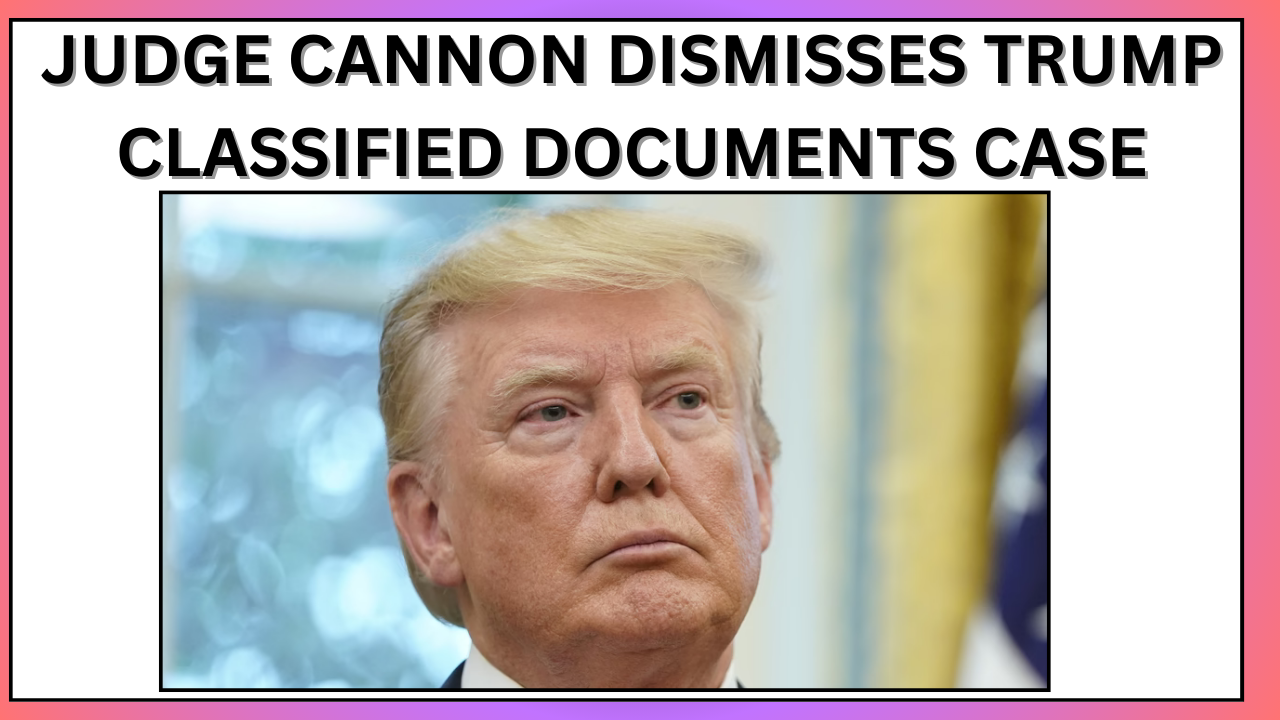In a decision that has captured national attention, Judge Aileen Cannon recently dismissed former President Donald Trump’s request to withhold classified documents from public scrutiny. This high-profile case has sparked widespread debate among legal professionals, political analysts, and news enthusiasts alike. The ruling holds significant weight as it touches upon crucial issues of governmental transparency and accountability.
In this blog post, we’ll break down the intricate details of the case, analyze the legal reasoning behind Judge Cannon’s decision, explore the broader implications for transparency and accountability, share reactions from political analysts and news outlets, and look at how this case might impact future legal battles involving classified information.
Analysis of the Legal Reasoning
Legal Arguments Presented by Both Sides
The crux of the case revolved around whether or not former President Trump had the authority to prevent the release of classified documents. Trump’s legal team argued that the documents were protected under executive privilege, thus making them exempt from disclosure. They contended that releasing these documents would jeopardize national security and set a dangerous precedent for future administrations.
On the other hand, the opposing legal team argued that executive privilege does not extend indefinitely and should not be used to shield potentially important information from the public domain. They further argued that the need for transparency and accountability, especially concerning presidential actions, outweighs claims of executive privilege in this context.
Judge Cannon’s Rationale for Dismissing the Case
Judge Aileen Cannon’s decision to dismiss the case was rooted in a careful examination of both legal arguments. She concluded that Trump’s claim of executive privilege was not sufficiently compelling to override the public’s right to know. In her ruling, she highlighted that while executive privilege is an essential component of governmental confidentiality, it is not an absolute shield.
Judge Cannon emphasized that the judiciary has a responsibility to balance national security concerns with the principles of transparency and accountability. She noted that the former president’s argument lacked concrete evidence showing how the release of these documents would pose a specific threat to national security. Therefore, she determined that the broader public interest in transparency prevailed in this instance.
Impact on Transparency and Accountability
Government Transparency
The dismissal of this case sets a noteworthy precedent for government transparency. By ruling against the indefinite extension of executive privilege, Judge Cannon underscored the importance of making governmental actions accessible to the public. This decision reinforces the notion that transparency is fundamental to a functioning democracy, allowing citizens to hold their leaders accountable.
Accountability in Leadership
Accountability in leadership is another critical aspect influenced by this ruling. By dismissing the case, the court affirmed that no individual, including a former president, is above the law. This sends a powerful message that leaders must be accountable for their actions, even after they leave office. It also ensures that future leaders understand the limitations of executive privilege and the importance of transparency.
Implications for Classified Information
While the ruling does not mean that all classified information will be readily available to the public, it does establish a framework for assessing claims of executive privilege. This framework demands a clear justification for withholding information, balancing national security with the need for public disclosure. This nuanced approach helps maintain the integrity of classified information while promoting transparency.
Reactions from Political Analysts and News Outlets
Public Opinions
The public’s reaction to Judge Cannon’s ruling has been diverse and robust. Some view the decision as a victory for democracy and transparency, applauding the court’s insistence on accountability. These individuals believe that the ruling helps restore public trust in the government by ensuring that leaders are held responsible for their actions.
Conversely, others argue that the decision undermines national security by potentially exposing sensitive information. They contend that executive privilege is essential for protecting the confidentiality of presidential communications and safeguarding national interests.
Expert Analysis
Political analysts have also weighed in on the ruling, with many recognizing its significance in the broader context of constitutional law. Some experts highlight that the decision strengthens the legal framework surrounding executive privilege, providing clearer guidelines for future cases. This clarity is seen as essential for maintaining a balance between transparency and security.
News outlets have covered the case extensively, with headlines reflecting the polarized opinions on the ruling. The coverage has brought attention to the critical issues of transparency, accountability, and the limits of executive privilege in the American political system.
Future Implications
Legal Battles Involving Classified Information
Judge Cannon’s decision is likely to influence future legal battles involving classified information. The ruling sets a precedent for how courts may handle claims of executive privilege, emphasizing the need for a compelling justification to withhold information. This precedent could shape the outcome of similar cases, potentially leading to increased transparency in governmental actions.
Public’s Right to Know
The case also reinforces the public’s right to know about actions taken by their leaders. By prioritizing transparency over indefinite claims of executive privilege, the ruling empowers citizens to demand accountability from their government. This empowerment is crucial for maintaining a healthy and functioning democracy.
Potential Legislative Changes
Finally, the decision may prompt legislative changes aimed at clarifying the scope and limitations of executive privilege. Lawmakers could take this opportunity to codify the principles outlined in Judge Cannon’s ruling, providing a clearer legal framework for handling classified information and executive privilege claims in the future.
Conclusion: Judge Cannon dismisses Trump classified documents case
Judge Cannon’s dismissal of Trump’s request to withhold classified documents marks a significant moment in the ongoing struggle between transparency and national security. The ruling emphasizes the importance of accountability and reaffirms the public’s right to know about the actions of their leaders.
For legal professionals, political analysts, and news enthusiasts, this case offers valuable insights into the complexities of executive privilege and the need for a balanced approach to transparency. It also serves as a reminder that the principles of democracy and accountability must be upheld, even in the face of challenging legal questions.
As we continue to witness the evolving landscape of American politics, it is essential to stay informed and engaged. Share your thoughts on this landmark case and subscribe to our updates for more in-depth analysis and insights into related legal and political developments. Your voice matters in the conversation about transparency and accountability in our government.



